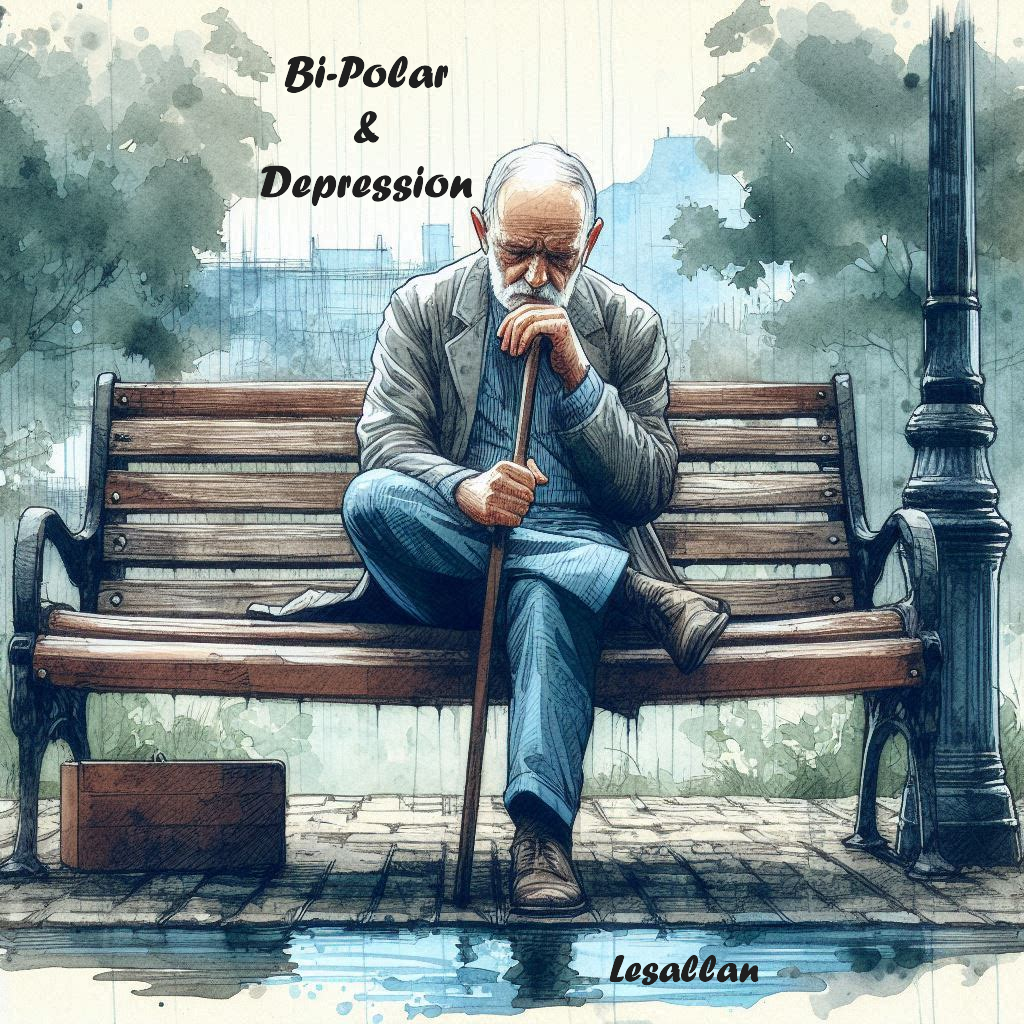Lesallan – August 17, 2024
Bipolar disorder is a mental health condition characterized by significant mood swings that include manic (or hypomanic) and depressive episodes. These episodes can manifest in a variety of ways, from elevated or irritable moods, excessive energy, racing thoughts, and decreased need for sleep during manic episodes to feelings of sadness, hopelessness, loss of interest or pleasure in activities, changes in appetite or weight, and difficulty concentrating during depressive episodes. It’s important to remember that the symptoms experienced can vary widely from person to person, and the severity of episodes can also differ. Your experience is unique, and seeking help tailored to your specific needs is okay.
It’s crucial to recognize these symptoms and take action. If you or someone you know is experiencing them, seeking professional help is essential. During a manic episode, you might experience elevated mood, which means extreme happiness, hopefulness, and excitement. This elevated mood can sometimes lead to impulsive behaviors, such as overspending, excessive risk-taking, or making unrealistic plans. You may also feel very irritable, experiencing anger, fits of rage, and hostile behavior. This irritability can make it difficult to interact with others and may lead to conflicts in personal and professional relationships. You might feel restless, with agitation and rapid speech. This can manifest as fidgeting, pacing, or talking quickly and loudly. In addition, you may demonstrate poor judgment, set unrealistic goals, and engage in risky behaviors. This could include reckless driving, substance abuse, or engaging in unsafe sexual activities. You might also experience increased energy, leading to less need for sleep and an unusually high sex drive. This heightened energy can result in impulsivity and a reduced ability to focus or concentrate on tasks. Furthermore, you might feel paranoid, with feelings of suspicion or paranoia. These paranoid thoughts can lead to feeling threatened or persecuted, even in the absence of real danger.
During a depressive episode, individuals may experience persistent feelings of deep sadness and despair. This can manifest as hopelessness, worthlessness, and guilt, leaving one feeling emotionally drained and overwhelmed. As a result, they may lose interest in activities they once enjoyed and constantly feel fatigued. Additionally, cognitive functions such as decision-making and concentration may become challenging, and sleep disturbances such as insomnia or needing excessive sleep often occur. Changes in appetite and weight, along with persistent thoughts of death or even suicidal tendencies, may also be present during a depressive episode.
These symptoms, which include extreme mood swings, shifts in energy and activity levels, and an inability to carry out day-to-day tasks, can significantly impact daily life, relationships, and work. If you or someone you know is experiencing these symptoms, it is essential to seek professional help. Remember, there are professionals who can guide you through the process and provide the necessary support. Would you like to learn more about the treatment options available or how to provide support to someone with bipolar disorder? Always seek professional help. It’s the first step towards understanding and managing the condition.
Lesallan



2 Comments
Temp Mail · August 18, 2024 at 5:34 pm
I share your level of enthusiasm for the work you’ve produced. The sketch you’ve displayed is refined, and the material you’ve authored is impressive. Nevertheless, you seem anxious about the prospect of heading in a direction that could cause unease. I agree that you’ll be able to address this concern in a timely manner.
BaddieHub · August 29, 2024 at 7:25 am
BaddieHub I’m often to blogging and i really appreciate your content. The article has actually peaks my interest. I’m going to bookmark your web site and maintain checking for brand spanking new information.
Comments are closed.